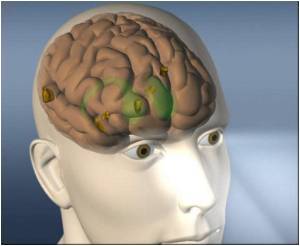Kynurenine, a by-product of the metabolism of the essential amino acid tryptophan, could be playing a crucial role in brain tumor growth.

The research – by a team of researchers from Germany, USA, Switzerland and Australia, led by Professor Michael Platten from the Department of Neurooncology at the University Hospital of Heidelberg – was recently published in the prestigious journal Nature.
In the study, the international team – including University of New South Wales researcher Associate Professor Gilles Guillemin – identified the key role played by kynurenine.
The researchers were also able to identify the receptor expressed by tumor cells that kynurenine acts through – the aryl hydrocarbon receptor (AhR).
While particularly relevant in the development and persistence of gliomas, the kynurenine pathway also has a role in other brain cancers, and is implicated in other neurodegenerative diseases. Associate Professor Guillemin said the breakthrough could potentially lead to viable therapeutics for a range of conditions, including Alzheimer’s disease, motor neuron diseases, multiple sclerosis and Parkinson’s disease.
“We are currently looking at all the molecules deriving from the tryptophan metabolism through the kynurenine pathway that can be linked to tumor persistence and immune suppression,” said Associate Professor Guillemin, who is head of the Neuroinflammation Group in UNSW’s School of Medical Sciences.
Advertisement
The finding is the latest in a series of related breakthroughs. In 2007, Associate Professor Guillemin, UNSW conjoint Professor Bruce Brew (St Vincent’s Hospital) and colleagues showed that tryptophan metabolism was significantly altered in another type of human brain tumor, neuroblastoma. This was a seminal study in the area and served as the foundation for further work. Since then the team, including PhD candidate Ms Seray Adams and postdoctoral scientist Dr Alban Bessede, has worked with neurosurgeon and UNSW conjoint Associate Professor Charlie Teo.
Advertisement
“The stage is set to apply this discovery to the uniformly fatal disease of brain cancer and in so doing, potentially find an effective treatment,” he said.
Source-Medindia












